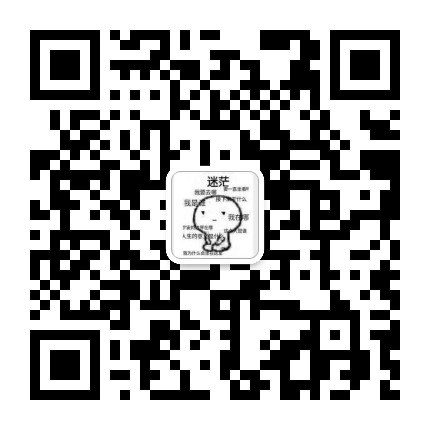1.首先安装swoole扩展
Swoole-1.x需要 PHP-5.3.10 或更高版本
Swoole-2.x需要 PHP-7.0.0 或更高版本
公司环境是php5.6.31所以比较麻烦需要编译安装,7以上直接使用命令
(pecl install swoole)
wget https://github.com/swoole/swoole-src/archive/v4.3.4.tar.gz
tar -zxvf v4.3.4.tar.gz
cd swoole-src-4.3.4
phpize
./configure --with-php-config=/usr/local/php/bin/php-config
make && make install
然后在php.ini添加swoole.so扩展即可
2.使用laravel的artisan创建命令
php artisan make:command Swoole #创建一个命令swoole并会在app/Console/Commands增加一个Swoole.php的文件
Commands\Swoole::Class #在Kernel.php里增加命令列表
3.运行socket服务
1.编辑app/Console/Command里的Swoole.php文件
<?php
namespace App\Console\Commands;
use Illuminate\Console\Command;
class Swoole extends Command
{
public $ws;
/**
* The name and signature of the console command.
*
* @var string
*/
protected $signature = 'swoole {action?}';
/**
* The console command description.
*
* @var string
*/
protected $description = 'swoole';
/**
* Create a new command instance.
*
* @return void
*/
public function __construct()
{
parent::__construct();
}
/**
* Execute the console command.
*
* @return mixed
*/
public function handle()
{
$action = $this->argument('action');
switch ($action) {
case 'close':
break;
default:
$this->start();
break;
}
}
public function start()
{
//创建websocket服务器对象,监听0.0.0.0:9502端口
$this->ws = new \swoole_websocket_server("0.0.0.0", 9502);
//监听WebSocket连接打开事件
$this->ws->on('open', function ($ws, $request) {
var_dump($request->fd . "连接成功");
// $ws->push($request->fd, "hello, welcome\n");
});
//监听WebSocket消息事件
$this->ws->on('message', function ($ws, $frame) {
// echo "Message: {$frame->data}\n";
// $ws->push($frame->fd, "server: {$frame->data}");
// var_dump($ws->connection_info($frame->fd));
//fd绑定客户端传过来的标识uid
$ws->bind($frame->fd, $frame->data);
});
$this->ws->on('request', function ($request, $response) {
// 接收http请求从post获取参数
// 获取所有连接的客户端,验证uid给指定用户推送消息
// token验证推送来源,避免恶意访问
if ($request->post['token'] == ### ) {
$clients = $this->ws->getClientList();
$clientId = [];
foreach ($clients as $value) {
$clientInfo = $this->ws->connection_info($value);
if (array_key_exists('uid', $clientInfo) && $clientInfo['uid'] == $request->post['s_id']) {
$clientId[] = $value;
}
}
if (!empty($clientId)) {
foreach ($clientId as $v) {
$this->ws->push($v, $request->post['info']);
}
}
}
});
//监听WebSocket连接关闭事件
$this->ws->on('close', function ($ws, $fd) {
echo "client:{$fd} is closed\n";
});
$this->ws->start();
}
}
【注】此处为了结合app上传数据时使用curl触发request回调通知web端的实例所以使用了httpserver的onrequest事件,如果以后有更好的办法去触发服务端实时主动推送。
2.编辑html
<div id="test">
<a href="javascript:void(0)">运行websocket</a>
</div>
$('#test').click(function(){
if("WebSocket" in window){
console.log("您的浏览器支持websocket\n");
var ws = new WebSocket("ws://66.66.66.66:9502");//创建websocket对象
ws.onopen = function(){
// ws.send("连接已建立\n");
ws.send($("#content").attr("js-sid"));
console.log("数据发送中");
}
ws.onmessage = function(evt){
var recv_msg = evt.data;
console.log("接受到的数据为:"+recv_msg);
}
ws.onerror = function(evt,e){
console.log("错误信息为"+e);
}
ws.onclose = function(){
console.log("连接已关闭");
}
}else{
console.log("您的浏览器不支持websocket\n");
}
});
3.curl方法(调用就行)
public function swooletest($param = ['s_id'=>2, 'info'=>'info'])
{
$param['token'] = ###;
$ch = curl_init();
curl_setopt($ch, CURLOPT_URL, "http://127.0.0.1:9502");
curl_setopt($ch, CURLOPT_RETURNTRANSFER, 1);
curl_setopt($ch, CURLOPT_HEADER, 1);
curl_setopt($ch, CURLOPT_POST, 1);
//设置post数据
$post_data = $param;
curl_setopt($ch, CURLOPT_POSTFIELDS, $post_data);
curl_exec($ch);
curl_close($ch);
}
4.测试的时候直接在laravel的artisan所在目录使用命令php artisan swoole即可启动socket服务,然后页面运行客户端,最后调用curl推送数据。
4.成功之后
用supervisor守护swoole命令,或者nohup后台启动。
supervisor配置麻烦不过可以自动重启,nohup一条命令解决
nohup php artisan swoole & #一条命令解决
此处说明几个问题
1.此处我采用的是bind方法,当客户端连接的时候send一个uid过来,然后在服务端处理的时候把uid和fd绑定在一起,当你想向某个客户端发送数据时传一个uid,通过uid找到fd进行指定发送,但是此处我用的是遍历getClientList所有连接用户(方法欠佳)的信息connection_info进行判定。希望能改善这种方法
2.因为是curl访问httpserver的形式,所以为了避免恶意访问,加一个token验证。
3.推送的信息转换成json再传,即info值
4.本实例的账户可能会在多个终端登录,有多个fd绑定uid,所以遍历推送push
转载请注明出处:
未经允许不得转载:lxfamn » laravel swoole websocket




